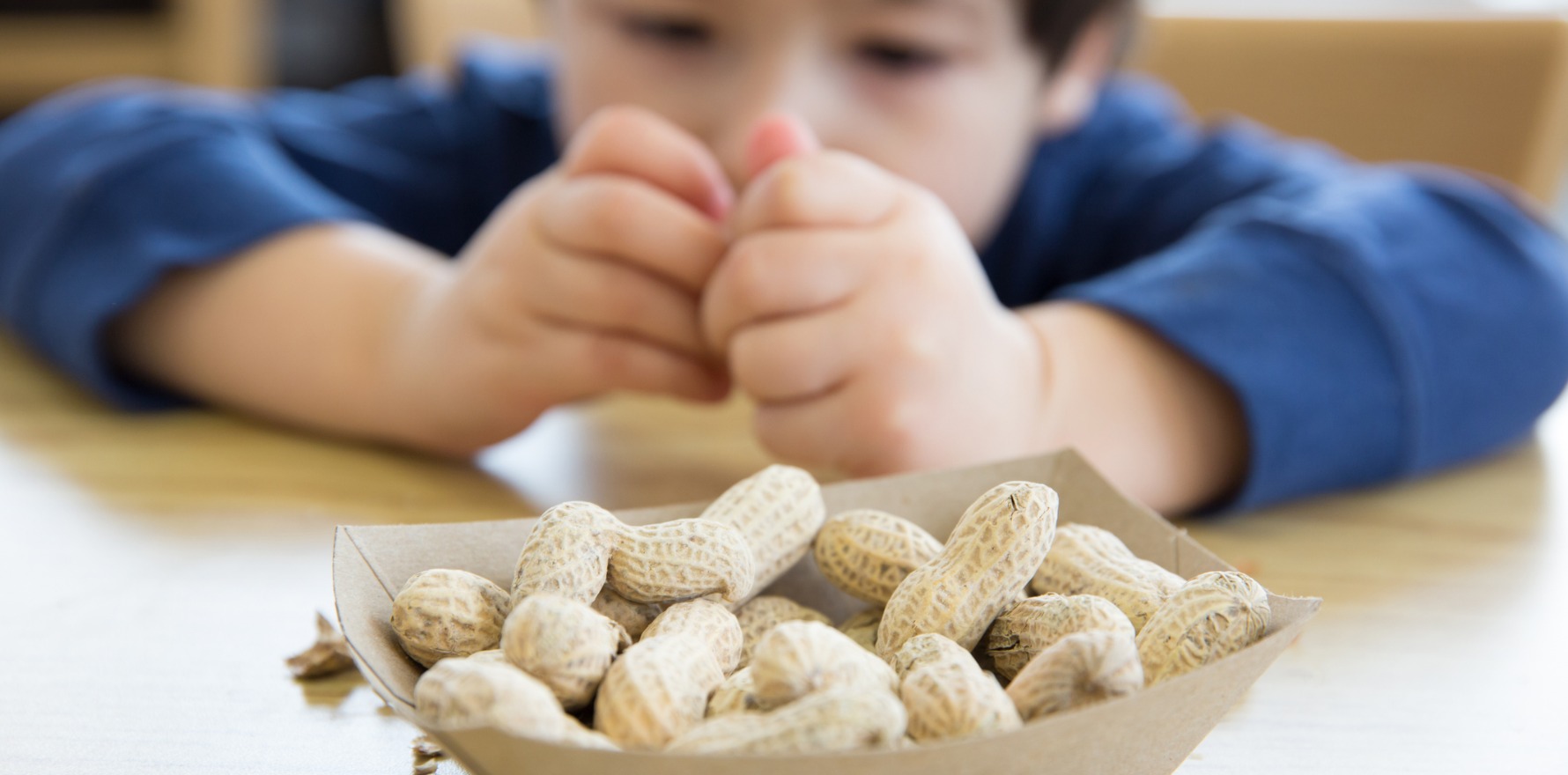More exposure to allergens in babies’ early life has put the brakes on Australia’s growing allergy rates.
Drastic changes to infant feeding guidelines appear to have been a success, leading to a 16% decrease in peanut allergies.
The study supports new advice to introduce the nuts and other allergens before 12 months.
Australia is often labelled the “food allergy capital” of the world, with roughly one in ten children developing a food allergy by one year of age.
Although many children will grow out of allergies to cow’s milk, soy, wheat and egg, peanut allergies will persist into adulthood for about 75% of childhood sufferers.
While parents were previously recommended to avoid allergenic foods in their child’s diet until age three, international infant feeding guidelines have been gradually walked back, and in 2016 Australian guidelines overturned the restriction.
Previous randomised control trials have supported the role of early peanut introduction in later immunity, but until now little information has been available on how effective the approach is at a general population level.
To address this, a research team from the Murdoch Children’s Research Institute (MCRI) collected data from approximately 2,000 infants living in Melbourne from 2018-19, comparing their findings to a similar population-based study conducted ten years earlier under previous infant feeding guidelines.
The researchers found a 16% decrease in the prevalence of peanut allergies among infants in the later cohort (from 3.1% to 2.6%), which they attributed to high adherence to infant diet guidelines. In 2009, only 28% of infants were eating peanuts before 12 months, but by 2019, this figure had jumped to 89%.
In one analysis, the authors found that 77.7% of children up to the age of 11 months were eating peanuts. The prevalence of peanut allergy in this group was 2.6%, compared to 4.8% in the group who avoided peanuts until they were older, the authors wrote in their conference abstract, presented at the American Academy of Allergy, Asthma & Immunology Virtual Annual Meeting.
MCRI PhD candidate and study lead author Victoria Soriano said best practice for GPs going forward was to encourage parents to follow the post-2016 feeding guidelines.
“I would be very hesitant to recommend doing anything besides following the tried and tested introduction guidelines, which is to introduce allergenic foods in the first year of life,” Ms Soriano told TMR.
She said although the findings do support early introduction of allergenic foods, it does not necessarily relate to the hygiene hypothesis of allergy formation.
“The hygiene hypothesis has to do with the gut microbiome, and the different bacteria and microbes that are in the system and how that affects the development of the immune system,” she said.
“Our study has more to do with the timing of the introduction of certain allergenic food and how the body responds to that.”
While the research has not yet been peer reviewed, the full study is expected to be published in the coming months.




